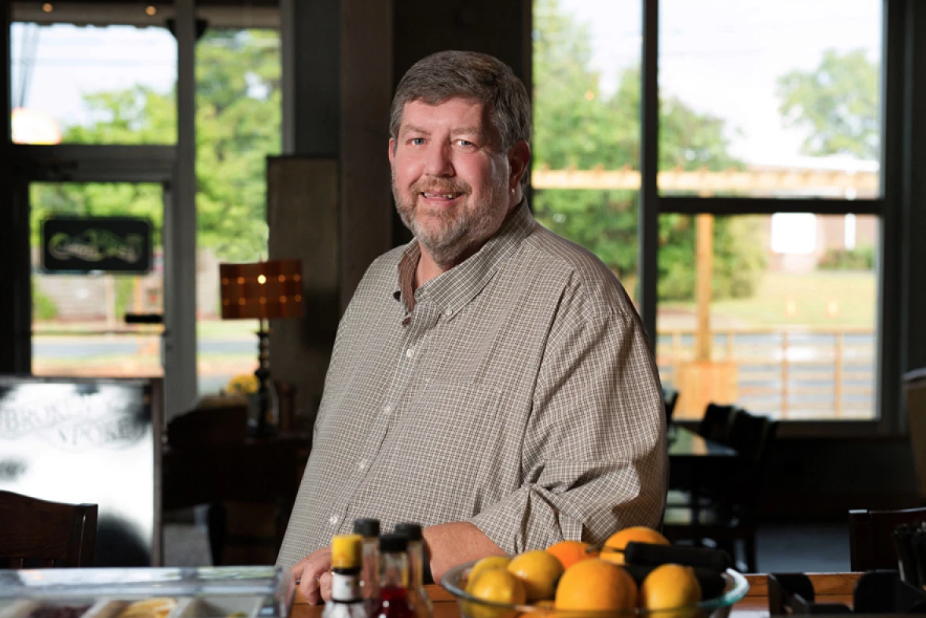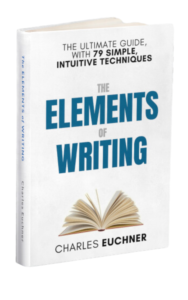This is the second part of a two-part interview with the longtime columnist, author, and podcaster Tommy Tomlinson. You can find Part 1 here.
You’ve devoted your whole life to being a writer. It shapes everything you do. How and why did you become a writer? Who were your greatest influences?
I come from a family of storytellers. At family reunions, as a little kid, I got to run around and listen to the conversations of adults. My parents grew up in that oral culture, where part of your value was, could you sit on the porch and tell a great story? I absorbed all that as a kid.
 I was a devoted reader because my parents were devoted readers. They were not educated people but they were readers. My dad’s favorite two books were the Bible and the Bass Pro Shop Catalogue. My mom, to the day she died, was a devoted reader of romance novels. So there were always books. I went to a library where we read all the Hardy Boys books, the Nancy Drew books, and lots of stuff.
I was a devoted reader because my parents were devoted readers. They were not educated people but they were readers. My dad’s favorite two books were the Bible and the Bass Pro Shop Catalogue. My mom, to the day she died, was a devoted reader of romance novels. So there were always books. I went to a library where we read all the Hardy Boys books, the Nancy Drew books, and lots of stuff.
One of the sacred times in our household was when the afternoon paper came at around 3:30. My job was to go and divide the sections up between my mom, my dad, and myself. From the time I was little I had this notion that storytelling was important and the news mattered.
I always wrote poems and short stories and all kinds of terrible stuff during high school and college but I still didn’t know what I wanted to do until my junior year when I went to an open trial for my college newspaper, The Red & Black, at the University of Georgia. I did a couple stories and I immediately knew that’s what I wanted to do the rest of my life.
Where did that satisfaction come from? I’m guessing 90 percent from being able to express yourself and maybe 10 percent the thrill of recognition and the byline.
It might have been more than 10 percent. I remember my friends would clip out stories I wrote and put them on my door or someone in my class would say, “Is this you?” and it was a thrill. It’s still a thrill.
There’s stuff that reporters do because it’s their job, and there’s stuff that writers do because it matters to them. What was your experience?
The big transition for me was when I realized I cared nothing about institutions and I cared about people. I covered city hall and the state legislature and cops and courts. When I started writing about people and their stories, that’s when I got engaged.
Every person I write about, I learned about myself in the process. Every time I went deep with someone else, I hoped it would show a little piece of our commonality. That’s been the big theme of what I’ve tried to do over the last 20 years. At our core, we’re more alike that we are different.
Do you remember a moment when you were bound to be a people writer and not an issues writer?
I did a story for the Observer about a group of autistic kids going through music therapy. They respond to music in ways they can’t respond to spoken language. The loved the experience of reporting that story.
I was becoming invisible in ways that led to more meaningful stuff. The therapy class was at a local college—and the teachers were 19, 20, 21 years old, all young women. They would get together and discuss their students. I went to these meetings for months every day and one of those meetings one of the women asked another if their periods had changed. Yeah, they had. I’m sitting there realizing I’m just a fly on the wall.
Do you have tips for writers? What are some tricks you’ve learned along the way?
I came up with 15 tips for my class at Wake Forest. Be a human being. Don’t be a reaper of information. Don’t interrogate the people you’re talking to—have conversations. Tell the story you need to tell while being as gracious as possible. Tell the story as if you’re talking to someone across the table rather than just giving information.
Be as simple and clear as possible. Remember that every story has two tracks—the plot and the subtext, what it means. The subtext has to come together in a powerful, emotional way by the end.
Also: Endings are always more important than beginnings. If you just get started and come to a powerful ending, that’s better than having a great hook and then the story peters out. Sometimes I could write a great hook and move that to the end.
Your writing reminds me of my favorite columnists, like Mike Royko. When I get to the end of a great column, l want to say, “Aren’t you going to keep going?” What I love about your book is that you do keep going.
A column needs to make an emotional point, in an engaging way that’s accessible to anybody. I wanted to do something different than everything else in the paper. Rather than presenting a dossier of information, I want it to feel like we’re sitting together on the front porch and I’m telling you what happened.
Bob Greene talks about hanging out with City Hall reporters in Chicago. They would have a drink and talk about what they had written for the next day. Then someone would say, “What really happened?” Bob Greene said he wanted to write about that stuff. That’s also what I wanted to write about. What’s the humanity behind the story? That requires building to an emotional point.
Everyone gives the advice to be as simple and clear as possible. But that’s a goal, not a technique.
Anything that feels like writing, cut it out. If you have a beautiful piece of writing but it’s not contributing to the story, take it out.
Also, if you’re stuck, just tell the story. Sit down and turn on the voice recorder and just tell the story. When you do that, all the writing BS gets that in the way, you will get rid of it. You might stumble and get stuff out of order, but that’s easy to fix.
When all else fails, fall back on the ultimately plotter—just give a straight chronology. I tell my students to structure their writing like this: First, … Then, … Then, … Then, … Finally, … That gets people out of being too self-conscious of being writers. Then you can adjust it to make it sparkle.
That’s really meaningful. The more you can write without feeling like a writer, the better you are. For tens of thousands of years, we didn’t write, we just told stories. That’s what’s in our DNA. It’s all based on that chronology and then putting pieces where they can be more powerful. So when in doubt, write it out; after you get it down, then you can play with it.
By the way, keep what you don’t use. You never know what you might use later. So don’t throw it away. And be proud of doing it. But always remember that your service to the reader is telling a story.
When you’re writing a book, some people say it’s just a bunch of little things that are stitched together. But actually, that’s not quite right. All of these pieces have to make a much larger whole thing.
When I was writing this memoir, I was always conscious of what it was building toward. Each scene stands for itself but it also has to carry some meaning that will pay off at the end. Does this scene matter for what I want the book to ultimately say? The whole scaffolding of a book is a lot bigger.
Did you have a sense of the whole thing at the beginning or did the arc of the story change?
When I started I didn’t know where I was going to end up. Part of the process was going through this deep thinking. I hadn’t done that before. I knew I was building a deeper understanding of myself. I knew I wanted to set up that idea but I didn’t know what it would be.
What authors influenced you when writing this book?
I loved to read Nora Ephron, Gay Talese, Tom Wolfe and more contemporary people like Tom Junot.
I really admired David Carr’s memoir and Mary Carr’s three books. There there were three memoirs that dealt directly with being overweight—Roxanne Gay’s Hunger, Libby West’s Shrill, and Kiese Laymon’s Heavy.
Was there a book on another topic that you used as a model?
There’s a book by James McManus, Positive Fifth Street, about the World Series of Poker, and it’s also about murder in Las Vegas. The poker part took me into a world that I didn’t know about and he was my tour guide into that world. I wanted to be a tour guide into the world of being overweight. A lot of people literally cannot fathom how somebody can get so fat. I wanted to describe that as clearly as I could so people would get it. That’s what makes books great—they take you into a world you’ve never been and make it part of you…


